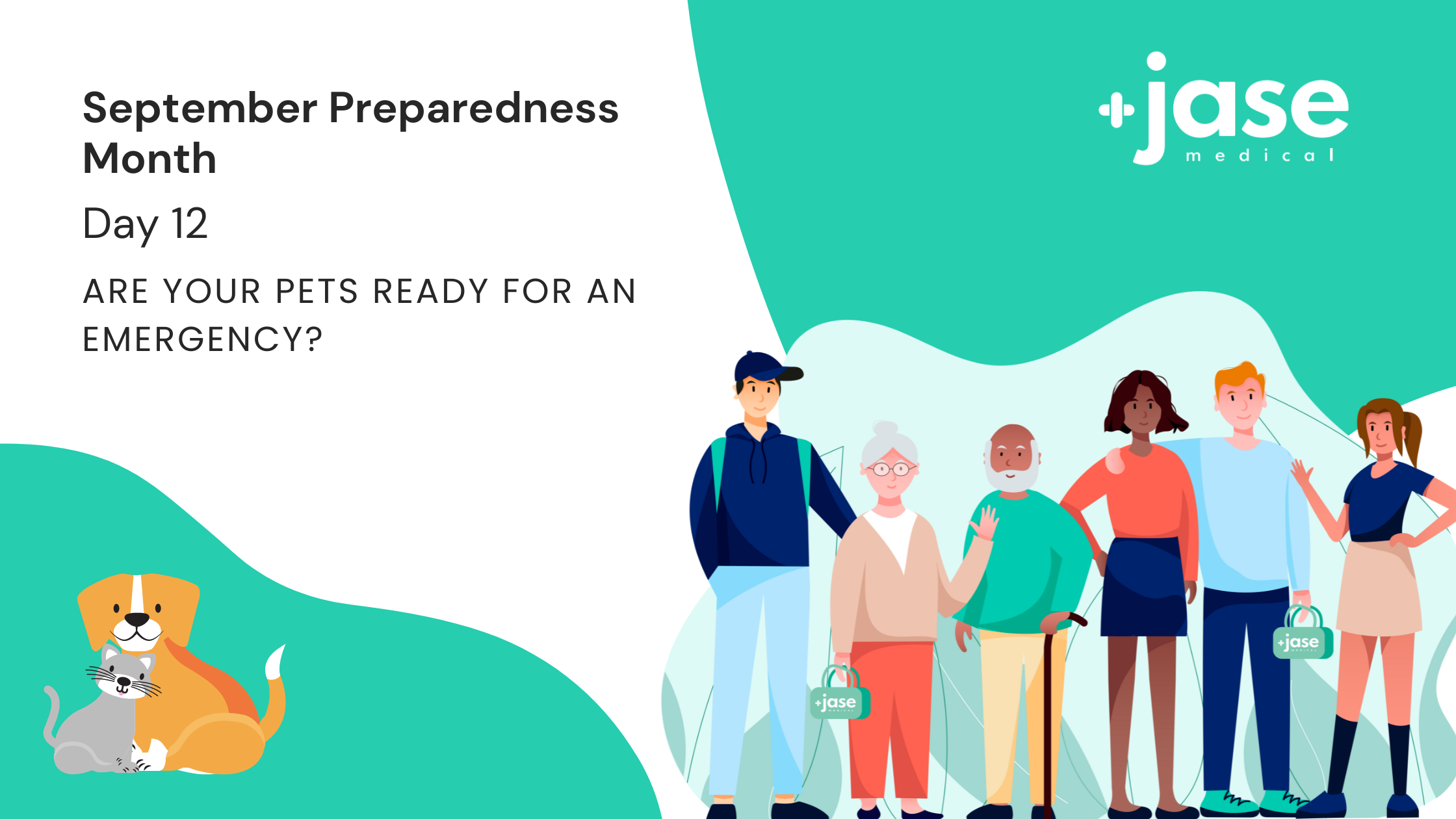

Your pets are an important part of your family! When preparing for an emergency, it is important your furry friends be included in your emergency plan as well.
Natural disasters and emergencies can happen at any time, it is important to have a plan in place before these occur so you will have less stress and worry, if or when the time comes.
PLANNING AHEAD
- Know what to do with your pet during an evacuation. If it is not safe for you to be in your house, it isn’t safe for your pet either. Many hotels and public shelters do not allow pets, so plan ahead for where you will take your pet if needed.
- Have a buddy system with friends, family or neighbors. Plan ahead with others to make sure your pets can be evacuated or cared for if you are not able to get to them or are unable to care for them.
- Have your pets documents and microchip information available. Make sure you have copies of all important medical and vaccination records, microchip info, and emergency and vet contact information available. You may also want to have these available electronically as well.
- Know how to contact your local emergency management, animal shelter, or animal control office. They can be helpful if you do get separated from your pet or need additional information in an emergency setting.
- Take a selfie with your pet. If you become separated from your pet, this can help others identify your pet and be proof of ownership.
Next, build an emergency kit for your pet. Depending on where you live, you may want to have a lightweight kit that is available if you need to evacuate quickly, or a larger kit if you need to shelter in place.
ITEMS TO INCLUDE IN YOUR PET KIT:
- Food and water: Keep several days’ supply of food and water for each person in your family, including each pet. Store food in an airtight and waterproof container.
- Medicine: Keep an extra supply of medication your pet takes in an airtight and waterproof container.
- First aid kit: Ask your vet about common medical supplies to have on hand for your pet’s emergency needs.
- Collar with ID tags, harness or leash
- Crate or sturdy carrier for each pet
- Grooming items: Shampoo, brush, etc just in case your pet needs to be cleaned up.
- Elimination needs: Include litter box, litter, newspaper, paper towels, plastic trash bags, or whatever else you may need when your pet goes to the bathroom.
- Familiar items: If there is room, put some favorite toys or bedding in your kit. This can help reduce stress for your pet.
If you have livestock animals, it is even more important to make sure you have a secure plan in place because moving these animals takes much longer and typically requires more equipment and planning.
- Ensure all animals have some form of identification.
- Evacuate early whenever possible. Consider multiple different routes that can accommodate trailers or whatever equipment is needed for your animals.
- Make sure there are available trailers for transport. Make sure there are qualified handlers and drivers as well.
- Make sure your destination has food, water, veterinary care, and handling equipment.
- If evacuation is not possible – take a minute to decide if you will move animals to a barn/shelter or turn them loose outside.
Lifesaving Medications
Recent Posts
Keeping you informed and safe.
FAQ: Our most commonly asked questions about Jase
If you’re considering Jase, chances are you’ve paused and thought, “This makes sense, but I still have a few questions.”You’re not alone. Here are the most common ones we hear, answered plainly. Is this really doctor-prescribed? Yes. Every Jase order is reviewed by a...
Medical Readiness: What Really Kills First
When Disaster Strikes, It’s Not Hunger or Thirst That Takes the First Lives In every disaster zone, from hurricanes in the Caribbean to war zones in Ukraine, the pattern is the same. People worry about food and water, but it’s infection that kills first. A small wound...
Exploring Dr. William Makis’ Hybrid Orthomolecular Cancer Protocol: Focus on Ivermectin and Mebendazole/Fenbendazole
Exploring Dr. William Makis’ Hybrid Orthomolecular Cancer Protocol: Focus on Ivermectin and Mebendazole/Fenbendazole *Disclaimer: This article is for educational purposes and does not constitute medical advice. Always seek professional guidance.* In the evolving...



